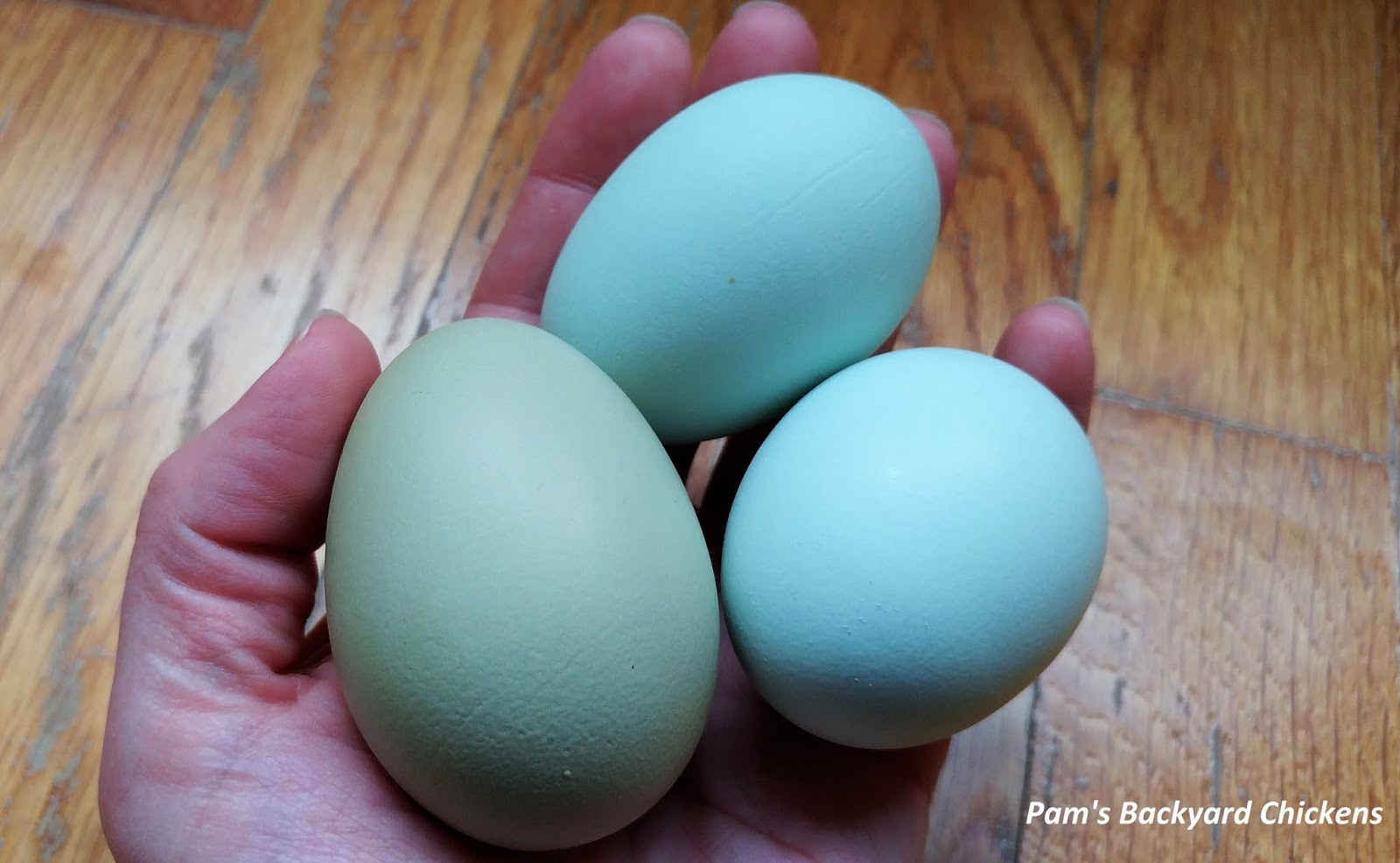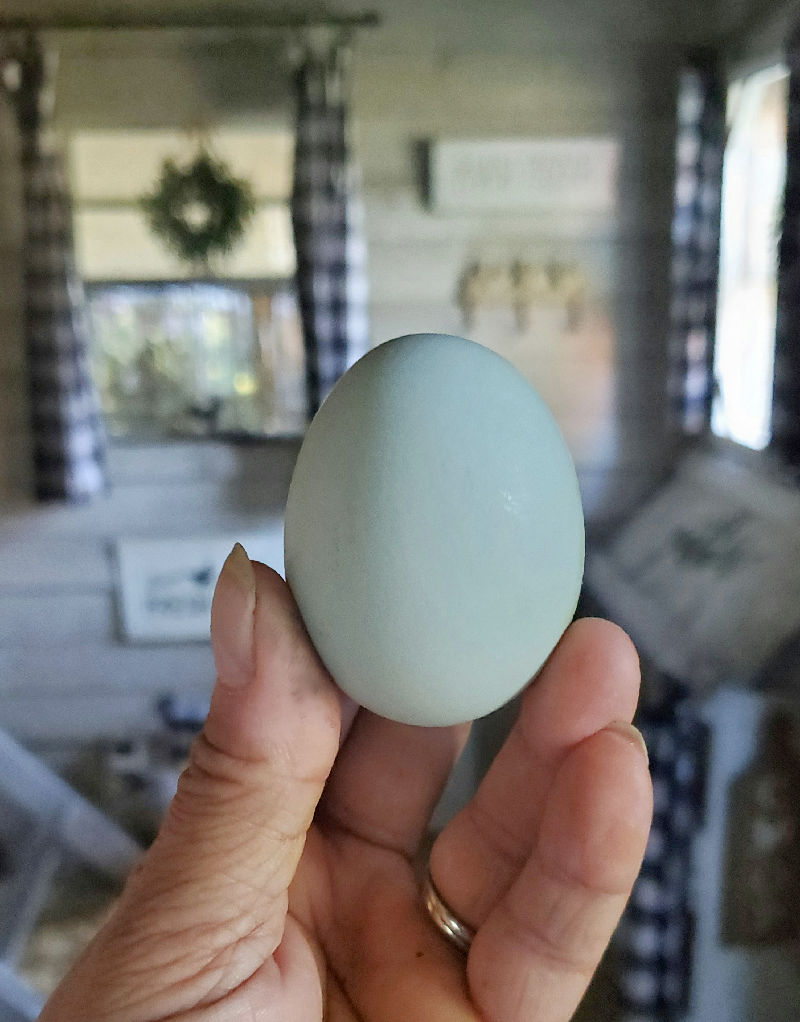Chickens are a popular choice for backyard farmers and hobbyists. But if you want to get the most out of your chicken husbandry, consider raising blue hens for their eggs. Blue hen eggs are known for their superior quality and nutritional value when compared to other egg varieties. With careful management and nutrition, blue hens can produce eggs that are rich in flavor, with a deep golden-orange yolk and a thick, creamy white. If you are looking to unlock the many benefits of raising chickens, blue hen eggs are the best option.
What Is a Blue Hen Egg?

Blue Hen eggs are a type of chicken egg that is smaller than the average chicken egg and has a distinct blue-green hue. Because of their unique color and size, Blue Hen eggs have become increasingly popular among chicken owners and breeders. They are known for their high nutritional value and their ability to produce healthy chicks. Blue Hen eggs are also popular due to their unique flavor and can be used in many types of recipes. Blue Hen eggs are best raised in small, closed coops and should be kept at a temperature of 60-80 degrees Fahrenheit. They should also be fed a high-quality diet and have access to plenty of fresh water. By following these guidelines, Blue Hen eggs can provide a healthy and nutritious diet for your chickens.
Benefits of Blue Hen Eggs

Nutritionally Dense
Blue hen eggs are considered a superfood due to their high levels of protein, vitamins, and minerals. They are also a great source of omega-3 fatty acids, which are linked to better heart health. Egg yolks from blue hens are also significantly higher in antioxidants and carotenoids than other egg varieties, making them beneficial for eye health.
Longer Shelf Life
Blue hen eggs have a longer shelf life than other egg varieties. This is due to their thick shells and unique protective coating, which help to keep the egg fresher for longer. They can last up to twice as long as other eggs, making them a great choice for those looking to stock up on eggs.
Low Risk of Contamination
Blue hen eggs have a lower risk of contamination than other eggs due to their thicker shells. This makes them a great choice for those looking to reduce their exposure to harmful bacteria or pathogens. What’s more, the protective coating on blue hen eggs also helps to keep them fresher for longer.
In conclusion, blue hen eggs offer a number of benefits that make them a great choice for chicken husbandry. With their nutritionally dense yolks, long shelf life, and low risk of contamination, blue hen eggs are the perfect choice for any egg lover.
How to Incorporate Blue Hen Eggs Into Your Chicken Husbandry
Sources for Blue Hen Eggs
When it comes to finding blue hen eggs, the best option for chicken husbandry is to purchase them from a reputable breeder. This will ensure that the eggs are fresh and of good quality, as well as from healthy hens. It is also possible to find blue hen eggs in some stores and online, though the quality can be questionable.
Housing Considerations
Housing blue hens requires a large coop that provides plenty of space for the hens to move around. The coop should be well-ventilated to prevent the spread of any airborne diseases, and should also be protected from predators. If possible, the coop should be located in a shaded area to keep the hens cool in hot weather.
Feeding Considerations
Blue hens require a balanced diet to stay healthy. This includes a combination of grains, greens, and other animal proteins. It is important to provide a variety of foods for the hens to ensure that they are getting the necessary nutrients. Additionally, it is important to provide fresh, clean water at all times.
Frequently Asked Questions
What are the Benefits of Raising Blue Hens?
Nutritious Eggs: Blue hens are known to produce eggs with a higher nutritional value compared to other egg-laying chickens, such as higher levels of omega-3 fatty acids, vitamin A and E, and lutein.
Egg Production: Blue hens are known for their high egg production and can lay up to 250 eggs per year.
Adaptability: Blue hens are very adaptable and can thrive in almost any environment. They are easy to care for and can be raised in both urban and rural settings.
Egg Color: Blue hens lay eggs with a unique color, ranging from light blue to deep blue and even green. These eggs are highly sought after by consumers who are looking for something different.
Hardy Breed: Blue hens are a hardy breed and can withstand cold temperatures, making them ideal for outdoor living. They are also less prone to common chicken diseases and illnesses.
Versatile: Blue hens can be used for egg production, meat production, or as a pet. They have a friendly nature, making them a great addition to any family.
What makes blue hen eggs the best for chicken husbandry?
- High Nutritional Value: Blue hen eggs contain high levels of Omega-3 fatty acids, Vitamin A, and Vitamin E, making them a healthier option than regular white eggs.
- Long Shelf Life: Blue hen eggs have a longer shelf life than regular white eggs and can be stored for up to 12 weeks.
- Low Cholesterol: Blue hen eggs have lower levels of cholesterol than regular white eggs, making them a healthier choice for people with high cholesterol.
- Ease of Handling: Blue hen eggs are easier to handle than regular white eggs due to their smaller size and weight.
- More Colorful: Blue hen eggs are more colorful than regular white eggs, making them a great addition to any egg dish.
- High Yield: Blue hen eggs have a higher yield than regular white eggs, making them an economical choice for chicken husbandry.
Blue hen eggs are the best choice for farmers and chicken keepers looking to get the most out of their chickens. They provide a wide range of health benefits, as well as a longer shelf life and more colorful eggs. All of these qualities make them ideal for chicken husbandry.
How do I determine the quality of blue hen eggs?
Look for size: Medium-sized eggs are ideal for blue hens. Smaller eggs may indicate a younger hen or a nutrient-deficient diet.
Check the color: High-quality blue hen eggs have a deep blue or greenish color.
Check the shell: Look for a smooth and glossy eggshell. Any bumps or cracks may be a sign of a low-quality egg.
Inspect the yolk: A bright orange-yellow yolk is an indication of a high-quality egg.
Check the taste: Blue hen eggs have a distinct flavor. High-quality eggs will have a rich, full-bodied taste.
Are there special considerations for raising blue hens?
Yes, there are some special considerations to keep in mind when raising blue hens.
- Feeding: Blue hens have a higher nutritional requirement than other chickens and need to be fed a high-quality feed to ensure they are getting the necessary vitamins and minerals.
- Environment: Blue hens are also more susceptible to cold environments than other chickens, so it is important to provide them with adequate shelter and protection from the elements.
- Health: Blue hens are also more susceptible to disease and should be monitored closely for any signs of illness. Vaccinations should be given regularly to ensure optimal health.
- Breeding: Blue hens are more difficult to breed than other chickens, and they require special attention when choosing a mate. As they have a higher nutritional requirement, they need to be provided with a nutritious diet during breeding.
What is the best way to care for blue hens and their eggs?
- Provide a safe, comfortable, and spacious environment: Blue hens should be provided with enough space to move around and roost, and their coop should be well-ventilated and kept clean. Roosts should be kept at least 18 inches off the ground and the floor should be lined with wood shavings or other material to aid in absorption.
- Ensure optimal nutrition: A balanced diet is essential for blue hens to remain healthy and produce quality eggs. Provide a diet rich in proteins, grains, vitamins, and minerals. Feeding a variety of food sources, such as grains, greens, and insects, will ensure a balanced diet.
- Provide access to clean water: Access to clean water is essential for blue hens. Water should be changed frequently and kept in a clean container. If water is too cold or dirty, blue hens may be reluctant to drink.
- Maintain a regular egg-laying schedule: Blue hens typically lay eggs once a day, but the exact pattern may vary depending on the breed and the individual hen. To ensure a steady supply of eggs, it is important to maintain a regular egg-laying schedule.
- Handle eggs with care: Fresh eggs should be collected daily and stored in a cool, dry place away from direct sunlight. Eggs should be handled with care, as rough handling can damage the eggshell and reduce the shelf life.
- Monitor health and behavior: Regularly check blue hens for any signs of illness or injury. If a hen is not eating or drinking, appears lethargic, or is displaying other signs of illness, contact a veterinarian immediately. It is also important to monitor their behavior and ensure they are not being bullied or harassed by other hens.
Conclusion
Raising Blue Hens is a great way to get the most out of your chicken husbandry. They are hardy birds that are easy to care for and can produce high-quality eggs for your family. Blue Hens are a great choice for the beginner and the experienced chicken enthusiast alike. With the right care and attention, you can unlock the benefits of raising Blue Hens and enjoy their delicious eggs.
